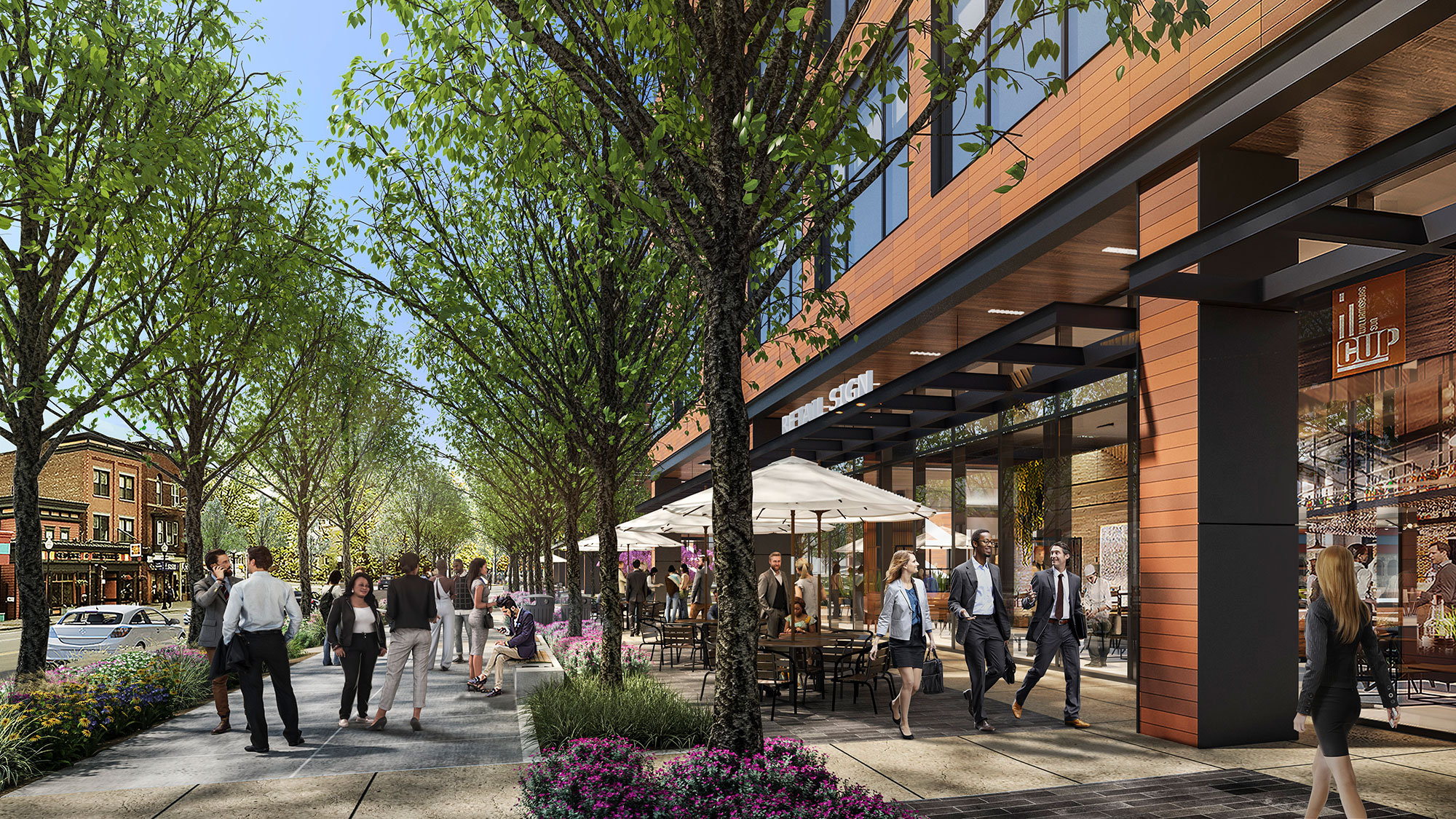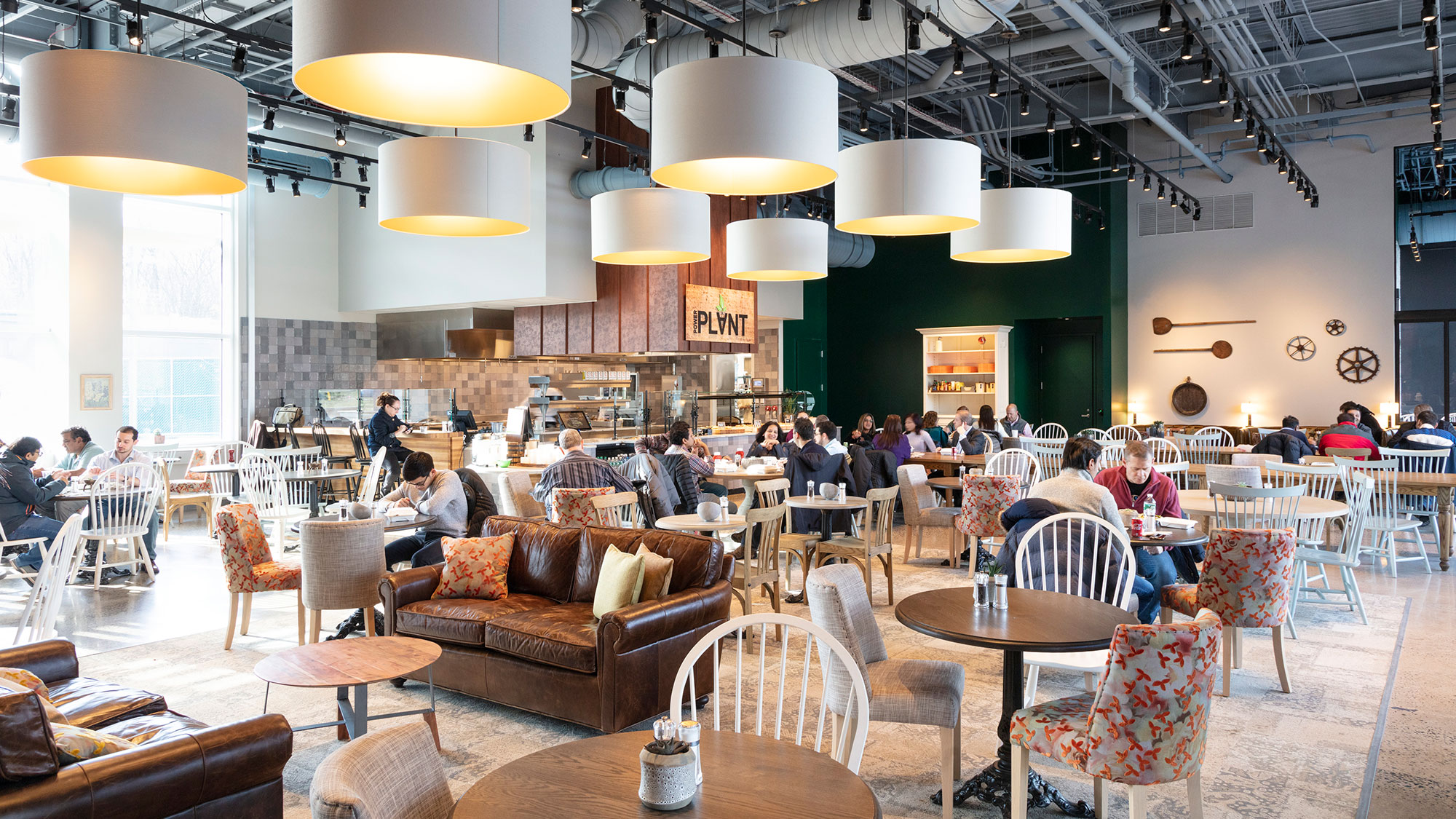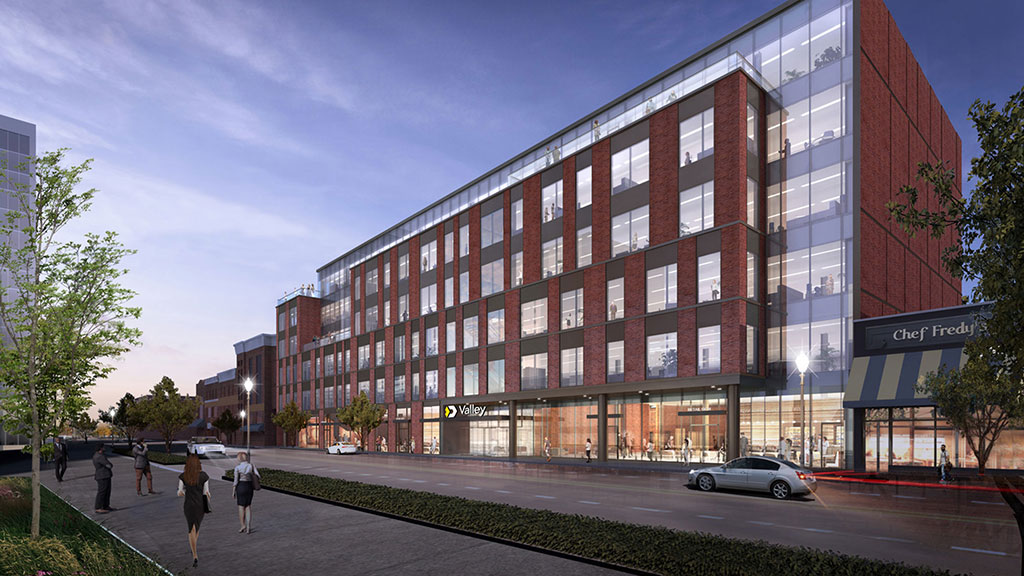Why More Corporate Offices Are Moving to Suburban Downtowns
February 05, 2024 | By Reid Brockmeier
While some major cities are continuing to recover from the economic effects of COVID, suburban downtowns, main streets, and small-town centers across the U.S. are experiencing a renaissance. People want to live and work in highly experiential locations. Gensler’s most recent City Pulse Survey shows that the strongest predictors of a great central business district (CBD) experience for residents include: 1.) A great place to live, 2.) a great place to work, and 3.) attractiveness of a CBD. Not only is this shift in corporate addresses beneficial for business, but it also presents opportunities for the broader communities and the people they serve.
Here are three reasons why more companies love the idea of relocating to suburban downtowns:
1. The Draws of Downtowns
People want to be in highly amenitized, high-quality buildings if they are choosing to commute to work. And the benefits of downtowns are twofold: they offer the opportunity to lease class A office buildings with modern amenities, therefore also attracting nearby residents. Relocating the workplace to a bustling downtown area with constantly evolving businesses, restaurants, and community draws, automatically future-proofs office “amenities.”
For companies today, the decision to relocate is not rent-driven but experience-driven. In general, suburban downtowns face a higher demand and limited supply challenge. Combined, this results in a 40-80% premium in rent. Not everyone can afford this premium and locate in a suburban property. The properties that are successful are highly amenitized. While the average gross rent per square foot for class A office in Northern New Jersey hovers around $28-$36, depending on if the property is amenitized, the average in downtowns like Morristown can be anywhere from $40 to over $50 per square foot, depending on if it is a new or existing property, because of the proximity to amenities. That’s why transit-oriented developments, like M Station in Morristown, have a positive impact on suburban downtowns by helping companies attract and retain talent.

2. Endless Benefits for Employees
With proximity to residential areas and reduced traffic compared to busier, urban environments, corporate offices in transit-oriented suburban downtowns feature the best of both worlds for employees — access to conveniences and proximity to outdoor green spaces. That’s why companies limited to corporate campus real estate are often trying to emulate the downtown model in their amenity strategies by inviting people in and connecting with the greater community.
Fostering a sense of community and local engagement is yet another way employees benefit from these workplaces. Through collaboration with local nonprofits, corporate social responsibility becomes hyperlocal, and employees have the opportunity to become good neighbors in the downtown ecosystem. For example, Barclays repurposed a vacant campus in Whippany, New Jersey, creating a best-in-class workplace that connects employees to the local community in multiple ways. Barclays employees also have the opportunity to patronize the best small businesses as vendors — ranging from local hairdressers to grocers — regularly set up shop and rotate placements within the campus’s “market” area. By seamlessly integrating a sense of place into our designs, we ensure that every community we serve experiences a purposeful connection to the spaces we create.

3. Community Impact
Through thoughtful collaboration between the public and private sectors, corporations have the ability to enhance suburban downtowns as vibrant business hubs, boosting local economies, revitalizing small businesses, and increasing foot traffic outside of business hours from local employees. By balancing commercial development with community needs, we can employ design strategies that prioritize the human experience, like adding pedestrian walkways and public green spaces. By implementing these human-centric, environmentally conscious practices in a company’s relocation to a downtown, it also proves to be an economic investment in the neighborhood for years to come.
For example, Morristown, New Jersey’s newest headquarters for Valley Bank incorporates community impact into everything it does, including its workplace and values. As part of the build out, Valley Bank leased a ground floor retail space of its building for Ethan & the Bean, a local café that supports and employs individuals with intellectual and developmental disabilities. The café creates organic interactions between Valley employees, training workers, and the wider community.
As more global corporations relocate their headquarters to suburban downtowns, the benefits are transformative for companies, their employees, and their communities at large. This is the piece of the economic puzzle that architects, designers, and developers can implement, continuing to revitalize our streetscapes, increase foot traffic, and create vibrant, economically viable downtowns.
For media inquiries, email .

